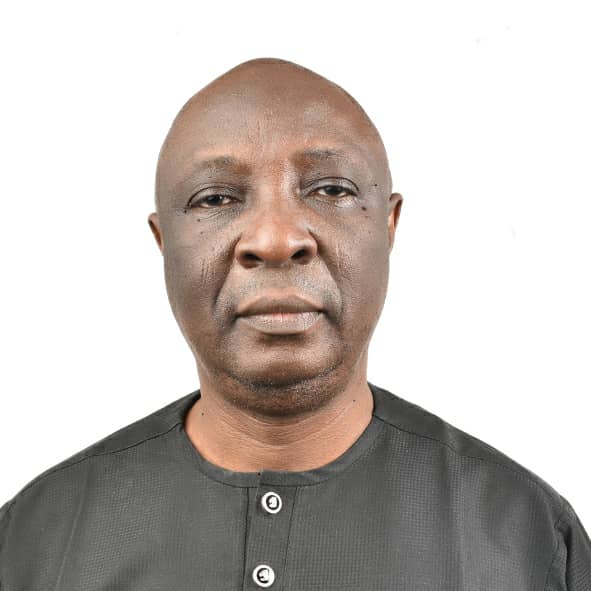Economists under the aegis of the Nigerian Economic Society have declared that the economic outlook across Sub-Saharan Africa, including Nigeria, is showing signs of gradual recovery after years of turbulence, although projected growth remains far below what is required to transform the region’s living standards.
They noted that Nigeria and other African countries are beginning to see a gradual economic recovery after years of turbulence, even though citizens continue to grapple with biting hardship. This was as the society reaffirmed its commitment to driving economic transformation and improving financial stability in Nigeria.
The NES President, Prof. Adeola Adenikinju, made this known during a press conference on Tuesday in Abuja, ahead of the society’s 66th Annual Conference scheduled for next week. The conference, scheduled for September 8–11, 2025, is themed “Rethinking Africa’s Development: Pathways to Economic Transformation and Social Inclusion in a Changing Global Landscape.”
PUNCH Online reports that fresh assessments by the International Monetary Fund and the World Bank forecast regional growth of about four per cent in 2025, with inflation expected to ease across several economies as tighter monetary policies begin to bite.
The NES president commented, “The economic outlook across Sub-Saharan Africa is gradually improving after several turbulent years, especially following the COVID-19 lockdowns.
“Recent assessments by the International Monetary Fund have projected regional economic growth nearing 4.0 per cent in 2025, with inflation easing toward target bands in a number of economies as monetary tightening takes effect.
“The economic outlook across sub-Saharan Africa is gradually improving after several turbulent years, especially following the COVID-19 lockdowns. The World Bank’s African Pulse makes similar predictions for 2025. Nonetheless, we must recognise that this projected economic growth still falls short of the continent’s needs to fully improve its standards.”
Despite cautious optimism, Adenikinju warned that Nigeria’s weak social infrastructure remains a major stumbling block.
According to him, Africa’s fragile recovery underscores the need for structural reforms, innovation, and inclusive growth strategies that go beyond headline GDP numbers.
“Africa’s economies are moving towards stability, but stability without transformation cannot lift millions out of poverty.
“One in every three persons in Sub-Saharan Africa still lives below the poverty line. In Nigeria alone, 133 million people face multidimensional poverty across education, health, and living standards. So, when we talk about growth, we must ask: growth for whom? Growth for what purpose?” he queried.
He described the state of Nigeria’s social welfare as ignominious, noting that 133 million citizens currently suffer deprivations across education, health, and living standards.
Adenikinju stressed that beyond macroeconomic indices, the sheer number of Nigerians trapped in multidimensional poverty underscores the fact that socio-economic development is multi-sectoral and cumulative.
The economist acknowledged steady macroeconomic growth and improved resilience from reforms introduced by the Federal Government, but insisted that such reforms must be sustained to yield real economic gains for Nigeria’s nearly 40 million micro, small, and medium enterprises and households.
“Such policy reforms have produced encouraging signals. For instance, official data indicate that headline inflation eased in July 2025 relative to previous months.
“While this is not a victory lap as inflation in the country remains high relative to comfort, and the gains have not been felt evenly by households, it is nevertheless an indicator of what is possible when well-designed fiscal and monetary policies are implemented. That path must be sustained, broadened, and translated into real-economic gains for MSMEs and households.”
Adenikinju, however, emphasised that the country cannot ignore the harsh realities confronting millions of citizens.
“At the same time, we cannot ignore the glaring facts about the ignominious state of social welfare. Nigeria’s Multidimensional Poverty Index, last measured in 2022, identified roughly 133 million Nigerians experiencing deprivations across education, health, and living standards”, he said.
He explained that true growth cannot be measured by GDP figures alone but by citizens’ dignity, access to basic services, and opportunities to thrive.
“Socio-economic development depends on healthcare that is reliable and affordable, educational systems that build human capital, secure communities, and functioning food systems.
“Hence, social inclusion is not optional. When 133 million Nigerians face multiple deprivations, growth must be measured not only by GDP but by dignity, opportunity, and access to basic services”, he said.
Adenikinju also underscored the wider global challenges confronting Africa’s growth prospects, including rapid technological shifts, climate change, and energy transitions.
“The world is being reshaped by artificial intelligence, biotechnology, robotics, and the Internet of Things. Yet, Africa is lagging, with limited digital infrastructure, low broadband penetration, and barely three per cent of global renewable energy capacity. Meanwhile, we remain the most vulnerable to climate impacts”, he said.
Speaking on the anticipated conference, Adenikinju said the NES is working in collaboration with the African Development Bank and other partners, is focused on turning Nigeria’s fragile economic stability into sustainable, transformative growth.
“The message is clear: while the momentum for economic transformation is visible, it is not yet sufficient.
“We must turn our fragile economic stability into transformative economic expansion,” he said.
The former CBN’s Monetary Policy Committee member noted that the forum would challenge participants to go beyond inherited assumptions and chart a new roadmap for Africa’s economic and social prosperity.
“Africa is not short of talent, ideas, or entrepreneurial grit. The real challenge lies not in the absence of good policy ideas, but in implementing them to bring tangible improvements to people’s lives,” he added.
While a single conference may not solve these complex issues, Adenikinju emphasised that it could serve as a strategic platform to generate evidence-based roadmaps by bringing together policymakers, academics, and industry leaders.
He said the 66th NES Conference aimed to provide a space to discuss Nigeria’s pressing economic challenges with experts across various sectors.
Founded in 1957, the Nigerian Economic Society was established by Nigerian scholars as a unified platform for economists and allied social scientists to provide intellectual leadership in navigating economic, social, and political change.
